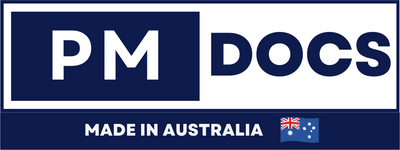What Is GDPR Toolkit And Why It Matters In Australia?
Introduction
The General Data Protection Regulation (GDPR) has revolutionized data privacy and protection across Europe and beyond, influencing how organizations manage personal data. Despite being a regulation framed within the European Union (EU), the consequences of GDPR have extended far beyond its borders, prompting nations, including Australia, to reassess their own data protection frameworks. Central to this transformation is the concept of a GDPR Toolkit — a resource that provides organizations with the necessary tools and guidelines to comply with GDPR standards.

Key Individual Rights Under GDPR And Their Comparison To Australian Privacy Principles
The General Data Protection Regulation (GDPR) is a robust framework established by the European Union to safeguard individuals' personal data and their privacy. In Australia, the Privacy Act 1988 outlines the Australian Privacy Principles (APPs), which provide similar protections. Below is a comparison of key individual rights under the GDPR and how they align with the Australian Privacy Principles.
1. Right to Access Data
-
GDPR: Individuals have the right to request access to their personal data held by organizations, as well as information about how it is processed (Article 15).
- APPs: The Australian Privacy Principles provide individuals with the right to access their personal information (APP 12). Organizations must make this information available upon request, subject to certain exceptions.
2. Right to Rectification
-
GDPR: Individuals can request the correction of inaccurate or incomplete personal data (Article 16).
- APPs: Under APP 13, individuals have the right to request the correction of their personal information if it is inaccurate, out-of-date, or misleading.
3. Right to Erasure (Right to be Forgotten)
-
GDPR: Individuals can request the deletion of their personal data under several conditions, such as when the data is no longer necessary for the purposes for which it was collected (Article 17).
- APPs: The equivalent provision is less explicit in the APPs. However, APP 13(2)(b) allows individuals to request the deletion of their data if it is no longer needed for the purpose for which it was collected.
4. Right to Restrict Processing
-
GDPR: Individuals have the right to request that the processing of their personal data is restricted under certain conditions (Article 18).
- APPs: While there is no direct equivalent in the APPs, APP 11 allows individuals to object to their data being used for direct marketing purposes, which implies a level of control over processing.
5. Right to Data Portability
-
GDPR: Individuals can request to receive their personal data in a structured, commonly used format, and transfer it to another data controller (Article 20).
- APPs: Australia does not currently have a dedicated data portability provision. However, updates to privacy regulations are being discussed to enhance individuals’ control over their data.
6. Right to Object
-
GDPR: Individuals can object to the processing of their data for certain purposes, including direct marketing (Article 21).
- APPs: APP 11 provides some level of objection, mainly pertaining to marketing, but lacks an explicit right to object to processing for other reasons.
7. Right to Withdraw Consent
-
GDPR: Individuals can withdraw their consent for data processing at any time (Article 7).
- APPs: Individuals may withdraw consent for the use of their personal data, but the specifics of the withdrawal process are not as clearly defined in the APPs as in the GDPR.
Does GDPR Apply To Australian Organisations?
The General Data Protection Regulation (GDPR) is a comprehensive data protection law enacted by the European Union (EU) in May 2018. While it primarily targets organisations within the EU, its reach extends beyond European borders. This raises questions for Australian organisations regarding their compliance with GDPR. Here are the key points to consider:
1. Applicability of GDPR
-
Territorial Scope: GDPR applies to any organisation that processes personal data of individuals located in the EU, regardless of where the organisation itself is based. This means Australian organisations that collect or process personal data of EU residents are subject to GDPR compliance.
2. Definition of Personal Data
- What Constitutes Personal Data: Under GDPR, personal data refers to any information related to an identified or identifiable natural person. For Australian organisations, this includes data such as names, email addresses, and IP addresses of individuals in the EU.
3. Data Processing Activities
- Types of Data Processing: If an Australian organisation engages in activities such as offering goods or services to EU residents or monitoring their behavior, it must comply with GDPR. This requires implementing appropriate measures to protect personal data.
4. GDPR Compliance Requirements
-
Legal Basis for Processing: Australian organisations must establish a lawful basis for processing personal data as outlined by GDPR, including consent, contractual necessity, or legitimate interests.
- Data Subject Rights: Organisations must provide EU residents with rights such as access to their data, the right to rectification, and the right to erasure among others.
5. Extra-territorial Reach
- Global Impact: The GDPR has a broad scope that impacts organisations worldwide. Australian companies active in the EU market must be mindful of their data handling practices to avoid potential fines and sanctions.
6. Potential Penalties for Non-Compliance
- Fines and Penalties: Non-compliance with GDPR can result in hefty fines, which can reach up to 20 million euros or 4% of the company’s global annual revenue, whichever is higher.
7. Importance of Data Protection
- Building Trust with Customers: Adhering to GDPR not only mitigates risks of penalties but also fosters trust among clients and customers who prioritize data protection and privacy.
8. Recommendations for Australian Organisations
-
Assess Data Handling Practices: Australian organisations should conduct audits to understand their data processing activities and determine if they fall under GDPR regulations.
- Implement Comprehensive Policies: Developing and enforcing robust data protection policies, including staff training, can help ensure compliance.
How A GDPR Toolkit Helps Australian Companies?
For Australian companies, utilizing a GDPR Toolkit can be invaluable in ensuring compliance and fostering trust. Here’s how:
1. Understanding Regulatory Requirements - GDPR mandates specific obligations concerning personal data handling. A GDPR Toolkit provides Australian businesses with clear guidelines on these requirements, facilitating compliance and offering a structured understanding of what is needed to protect personal data.
2. Risk Assessments and Gap Analysis - Implementing a GDPR Toolkit allows companies to conduct thorough data privacy impact assessments and gap analyses. This helps identify vulnerabilities within their current data handling processes and develop strategies to address them, ultimately minimizing risks associated with data breaches.
3. Streamlined Data Management Processes - A GDPR Toolkit assists organizations in streamlining their data management practices. By establishing clear procedures for data collection, storage, and processing, companies can ensure a more efficient approach to managing personal data in compliance with GDPR requirements.
4. Enhanced Data Security Measures - With the GDPR emphasizing the importance of data security, the toolkit offers resources to develop robust security measures. Australian companies can adopt these best practices to safeguard personal data against unauthorized access and breaches, ultimately protecting their reputation and financial stability.
5. Staff Training and Awareness - Employee training is crucial for maintaining GDPR compliance. A GDPR Toolkit often includes training materials and educational resources to impart knowledge to staff about data protection principles, ensuring that everyone in the organization understands their role in safeguarding personal data.
6. Improved Customer Trust and Brand Reputation - By taking GDPR compliance seriously and using a comprehensive toolkit, Australian companies can demonstrate their commitment to data protection. This enhances customer trust, builds a positive brand reputation, and encourages customer loyalty, as individuals are more likely to engage with companies that prioritize their privacy.
7. Support for International Business Operations - For Australian companies engaging with EU consumers or partners, adherence to GDPR is not optional. A GDPR Toolkit provides the necessary tools and resources to navigate the regulatory landscape smoothly, enabling businesses to operate internationally without legal repercussions.
Conclusion
In a digital landscape increasingly shaped by data privacy concerns, the GDPR toolkit provides Australian businesses with essential resources for ensuring compliance and fostering trust with their customers. As businesses continue to engage in international trade and digital interactions, understanding and leveraging the GDPR toolkit is not just a regulatory necessity; it has become a fundamental aspect of modern business strategy.




